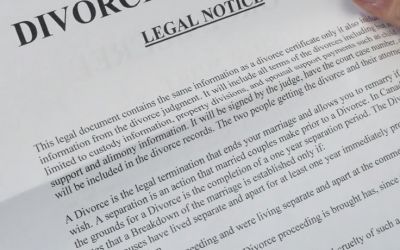Can a Muslim Marry a Non-Muslim? What Does The Law Say in 2025?
Table of Contents ▼
Stuck in the labyrinth of “Can a Muslim marry a Non-Muslim”?
Marriage is a beautiful and significant milestone in life, with special spiritual meaning for Muslims.
However, when love crosses religious boundaries, complexities often arise, especially when considering Sharia law. A question that frequently comes up is: Can a Muslim marry a non-Muslim?
Let’s break this down clearly, referencing reliable Islamic and government sources to guide us.
Marriage and Sharia Law
In Islam, marriage is more than just a legal arrangement—it is a sacred bond built on love, mercy, and faith. Sharia law, which governs the lives of Muslims, provides detailed guidance on the institution of marriage, emphasizing the importance of a strong religious foundation.
For a marriage to thrive in Islam, compatibility in faith plays a crucial role, as Islam places great importance on religion in shaping family dynamics, decision-making, and nurturing future generations.
According to the UAE government portal, a key requirement in marriages under Sharia law is that both partners share similar religious values. So, can a Muslim marry a non-Muslim? The answer varies depending on whether the question is directed toward a Muslim man or woman.
Can a Muslim Man Marry a Non-Muslim Woman?
Islam permits a Muslim man to marry a non-Muslim woman, but there are certain restrictions. Specifically, a Muslim man can marry a woman who belongs to the “People of the Book,” which refers to practicing Jews and Christians, according to the Quran and Islamic scholars’ interpretation.
A Christian or Jewish woman who is known for her chastity, faithfulness, and religious devotion is eligible for marriage to a Muslim man. However, this allowance comes with several key conditions:
Firstly, the woman must genuinely practice her faith, meaning she should not be an atheist or someone who rejects all religion. Secondly, she must be chaste, adhering to a modest lifestyle.
Thirdly, the marriage should not undermine the Muslim man’s religious commitment or interfere with the Islamic upbringing of any future children.
While interfaith marriages are allowed in many Muslim countries, such as the UAE, local authorities still encourage marrying within the faith due to potential challenges like religious holidays and family expectations.
Can a Muslim Woman Marry a Non-Muslim Man?
In contrast to the allowance for a Muslim man to marry a non-Muslim woman, the answer is a firm “No.”
This is a clear and consistent teaching in Islam, supported by the Quran and the understanding of Islamic scholars. Even if the man is from the “People of the Book”—a Jew or Christian—the marriage is not permitted.
The reasoning behind this restriction is rooted in the traditional family structure in Islam, where the husband typically holds a leadership role within the home. Islam places great emphasis on ensuring that a Muslim woman’s faith is safeguarded and respected.
There is concern that a non-Muslim husband may influence his Muslim wife or their children, possibly leading them away from Islam.
This prohibition aims to protect the woman’s religious beliefs and the Islamic upbringing of the next generation, making it a matter of both faith and family integrity.
Interfaith Marriage in Today’s World
In today’s interconnected world, where people from different cultures and religions come together regularly, interfaith relationships are becoming increasingly common.
With globalization and growing multiculturalism, it’s no surprise that people from diverse backgrounds are forming relationships that cross religious boundaries.
Many countries have had to adapt their legal systems to account for these new realities. This raises the question: Can a Muslim marry a non-Muslim?
Muslim-majority countries vary in how they handle interfaith marriages legally. Some countries, like the UAE, permit non-Muslim marriages under civil law but require Muslim marriages to follow Sharia law.
This ensures that the religious and cultural requirements of the Muslim community are met. In contrast, countries such as Saudi Arabia strictly enforce Islamic marriage laws for all marriages, whether interfaith or not.
This illustrates that even with modern changes and the increasing prevalence of interfaith unions, the core principles of Sharia law remain largely unchanged.
Conversion as a Solution?
In some cases, a non-Muslim partner may choose to convert to Islam. When this happens, the barriers to marriage between the Muslim and non-Muslim partner are removed. However, it’s crucial to emphasize that conversion must be genuine.
It should not be treated as merely a checkbox to allow a marriage to take place. Islam places great importance on sincerity, and converting to the faith should come from a true belief in Islam, not simply out of love for a person.
Many scholars recommend that couples considering conversion as a solution take the time to properly learn about Islam and understand its teachings. This ensures that the decision is heartfelt and not rushed.
Genuine conversion requires deep faith, reflection, and an authentic connection to the teachings of Islam. This process helps ensure that the commitment to Islam is sincere and not merely circumstantial, leading to a deeper understanding and respect for the faith.
Ready to Start Your Journey Together?
Sharia law offers guidelines not to complicate life, but to safeguard faith, family, and future generations.
If you or someone you know is considering an interfaith marriage, it’s important to consult knowledgeable scholars and understand both the religious and legal aspects.
At Easy Wedding, we specialize in making your Islamic marriage simple, beautiful, and stress-free, no matter where you are on your faith journey.
Whether you’re preparing for a traditional Nikah or navigating the complexities of an interfaith marriage, our expert team is here to support you every step of the way.
Visit Easy Wedding today and take the first step toward a joyful, lasting future together!



